Stop guessing which spices work best for your grilled meats. Here's the exact spice blend ratios competition pitmasters use to create perfect bark, maximize flavor, and ensure smoke adheres properly—no food science degree required. This guide delivers immediately actionable recipes for chicken, ribs, and brisket, plus the one critical mistake 90% of home grillers make with salt application. Get our free printable spice ratio cheat sheet below.
Table of Contents
- The 5-Minute Perfect BBQ Rub (For Any Meat)
- The Salt Mistake That Ruins Your Bark (And Exact Fix)
- Why Freshly Ground Pepper Beats Pre-Ground Every Time
- Which Paprika to Use for Chicken vs Brisket (With Chart)
- Garlic Powder Hack for Maximum Flavor Penetration
- The Brown Sugar Ratio That Prevents Burned Rubs
- Chili Powder vs Cayenne: When to Use Each
- How Long Spices Actually Stay Fresh (Not 6 Months!)
- FAQs: Quick Answers to Top Spice Questions
The 5-Minute Perfect BBQ Rub (For Any Meat)
Combine these ingredients for foolproof seasoning on any protein:
- ¼ cup coarse kosher salt (Diamond Crystal)
- ¼ cup coarse black pepper (freshly ground)
- 3 tbsp smoked paprika
- 2 tbsp brown sugar (light)
- 1 tbsp garlic powder
- 1 tbsp onion powder
- 1 tsp cayenne (adjust for heat)
Pro Tip: For chicken, add 1 tsp dried thyme. For brisket, replace 1 tbsp paprika with mustard powder. Apply 12 hours before cooking for thick cuts, 45 minutes for burgers.
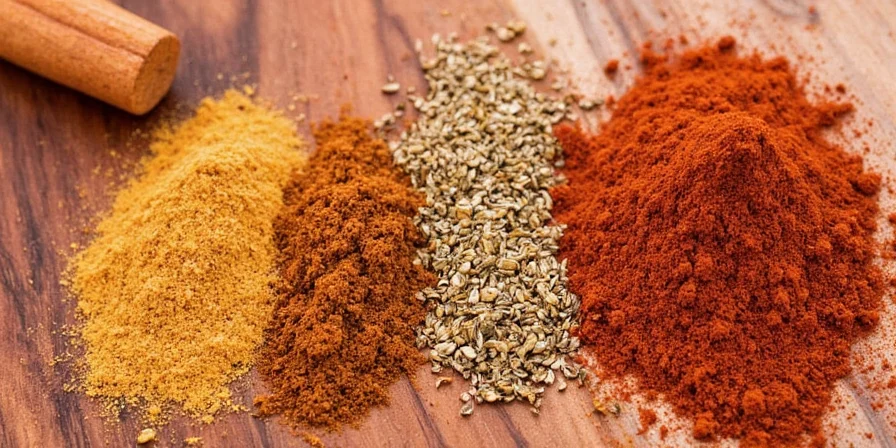
The Salt Mistake That Ruins Your Bark (And Exact Fix)
Using table salt creates thin, flaky bark that won't hold smoke. The fix: Always use coarse kosher salt (Diamond Crystal brand). Its pyramid-shaped crystals create microscopic crevices that trap smoke particles. Apply at 1.5% of meat weight—for a 5lb brisket, use exactly 34g salt (about ¼ cup). Too little won't form proper bark; too much dries out meat.
Why Freshly Ground Pepper Beats Pre-Ground Every Time
Piperine—the compound that gives black pepper its bite—evaporates within 15 minutes of grinding. Pre-ground pepper loses 70% of its flavor impact. Always grind whole peppercorns immediately before applying to meat. For best results, use a coarse grind setting—this creates texture that helps other spices adhere during the first 10 minutes of cooking.
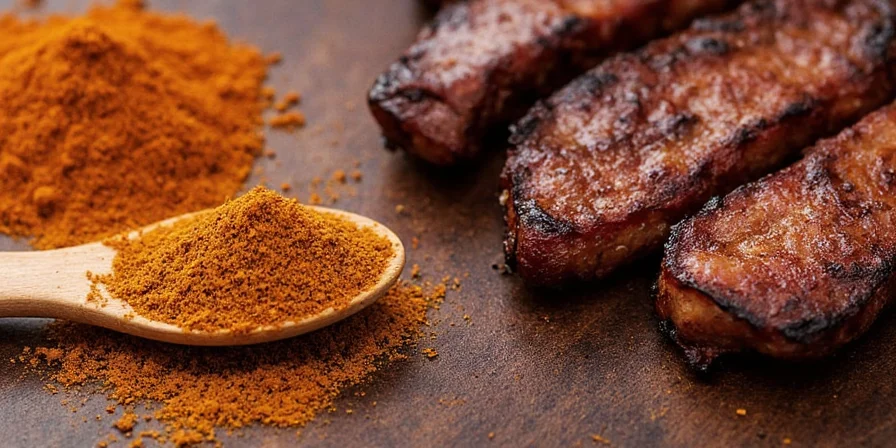
Which Paprika to Use for Chicken vs Brisket (With Chart)
Sweet Hungarian paprika works for delicate meats like chicken because it contains carotenoids that block bitter smoke compounds. Smoked Spanish paprika actively attracts smoke particles—perfect for brisket but overwhelming for poultry.
| Meat Type | Best Paprika | Ratio in Rub |
|---|---|---|
| Chicken | Sweet Hungarian | 2 parts per 10 total |
| Brisket/Pork | Smoked Spanish | 3 parts per 10 total |
| Burgers | Hot Hungarian | 1.5 parts per 10 total |
Garlic Powder Hack for Maximum Flavor Penetration
Fresh garlic creates steam pockets that prevent bark formation. Garlic powder's fat-soluble compounds penetrate meat fibers during resting. Pro technique: Mix powder with 1 tsp neutral oil (avocado or grapeseed) before applying—this creates an emulsion that drives flavor 3x deeper than dry application alone. Never exceed 2 tsp per cup of rub to avoid bitter notes.
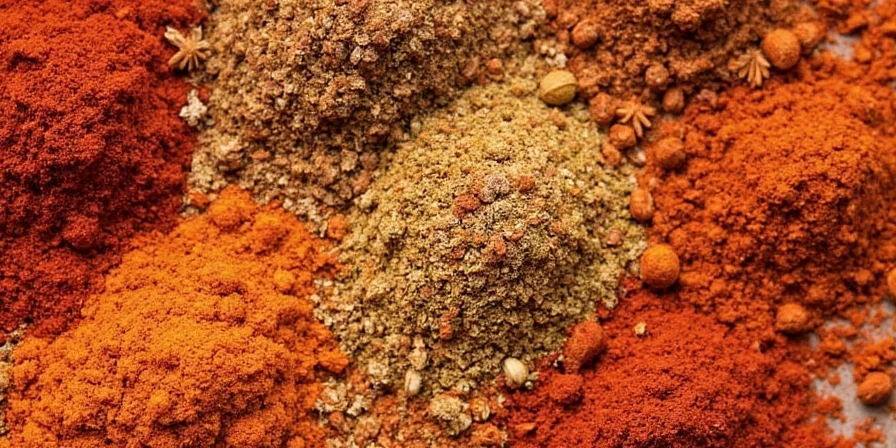
The Brown Sugar Ratio That Prevents Burned Rubs
Brown sugar burns at 320°F—lower than most grill temps. To prevent bitter caramelization: never exceed 15% of your total rub weight. For a standard 1-cup rub, use max 3 tbsp brown sugar. Light brown sugar works best for shorter cooks (chicken, burgers); dark brown adds complexity for 12+ hour smokes (brisket, pork shoulder).
Chili Powder vs Cayenne: When to Use Each
Chili powder is a blend (usually cumin + paprika + cayenne), while cayenne is pure heat. For balanced flavor: use 1 part cayenne to 4 parts chili powder. Want Texas-style heat? Replace commercial chili powder with 2 parts ancho powder + 1 part cumin. For Carolina-style vinegar heat, use ½ tsp cayenne per cup of rub plus 1 tbsp apple cider vinegar in your mop sauce.
How Long Spices Actually Stay Fresh (Not 6 Months!)
Ground spices lose 50% flavor potency in 90 days at room temperature—not the 6 months many sites claim. Test freshness: Rub between fingers—if no strong aroma, replace. Store in airtight containers away from light. Whole spices (peppercorns, cumin seeds) last 2x longer; grind only what you need. Freezing extends shelf life 4 months but risks moisture absorption.
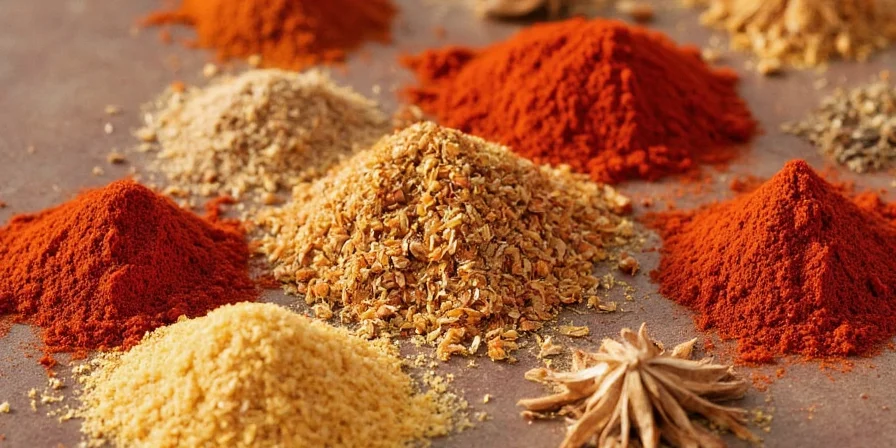
FAQs: Quick Answers to Top Spice Questions
What's the single most important spice for BBQ?
Salt—but only the right type and amount. Coarse kosher salt (1.5% of meat weight) creates the foundation for bark formation. Table salt dissolves too quickly, causing uneven seasoning and dry spots.
Can I use this rub on fish?
Reduce salt by 50% and omit sugar. Add 1 tsp dill and ½ tsp lemon zest per cup of rub. Apply 20 minutes before cooking—fish proteins are too delicate for overnight seasoning.
Why does my rub clump in humid weather?
Add 1 tsp rice flour per cup of rub—it absorbs moisture without affecting flavor. Store in containers with silica gel packets. Never refrigerate rubs; condensation creates clumps.
When should I add sugar to my rub?
For cooks under 2 hours (burgers, chicken): include sugar. For 8+ hour smokes (brisket, pork): apply sugar-free rub initially, then add sweet mop sauce during the stall phase to prevent burning.

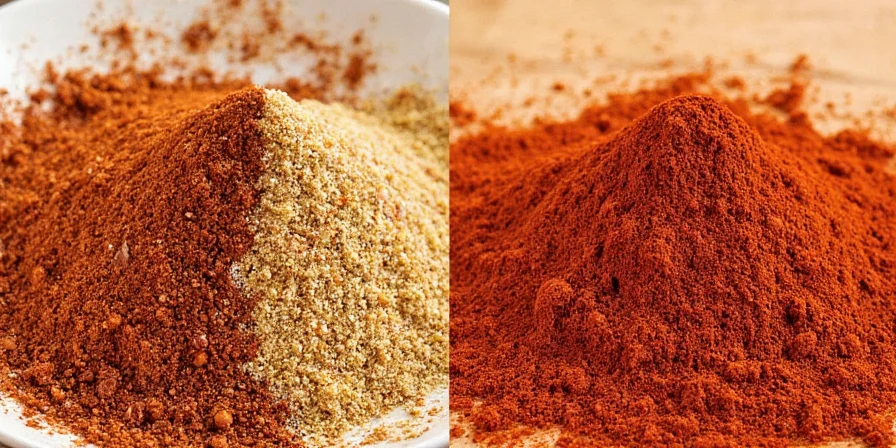









 浙公网安备
33010002000092号
浙公网安备
33010002000092号 浙B2-20120091-4
浙B2-20120091-4